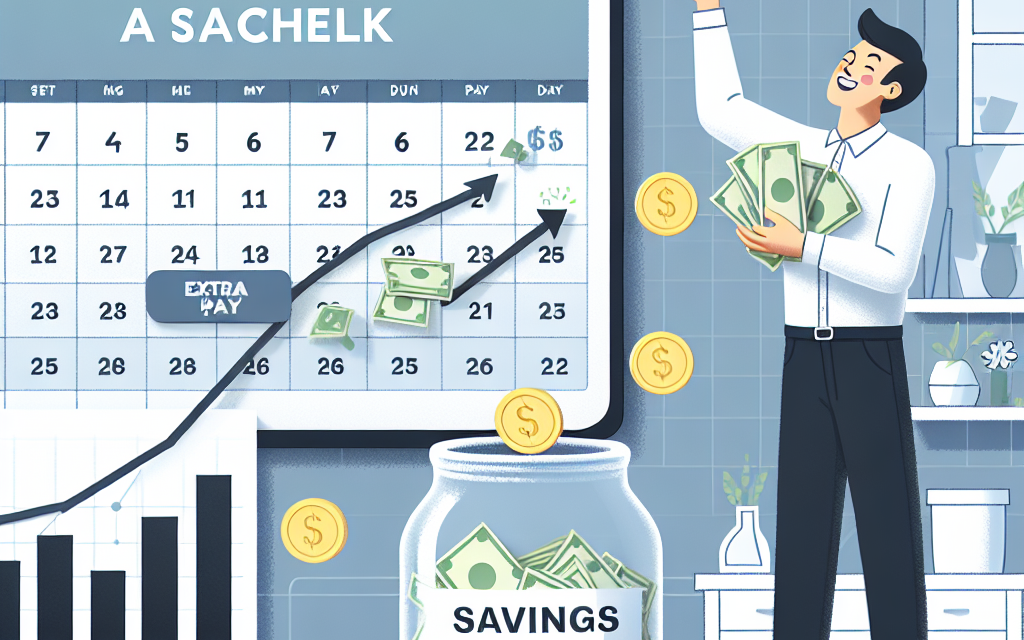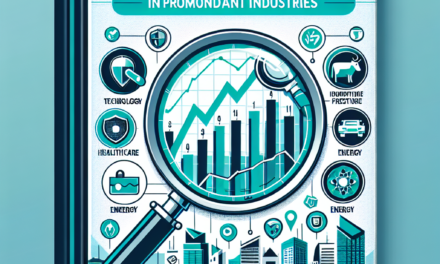“Unlock Extra Savings: Make the Most of Your 3-Paycheck Month!”
Introduction
Maximizing your savings during a 3-paycheck month can significantly boost your financial health and help you reach your savings goals more quickly. With an extra paycheck, you have a unique opportunity to allocate funds towards savings, debt repayment, or investments. By strategically planning how to utilize this additional income, you can enhance your emergency fund, contribute to retirement accounts, or tackle outstanding debts. This guide will explore effective strategies to make the most of your 3-paycheck month, ensuring that you maximize your savings potential and set yourself up for long-term financial success.
Budgeting Strategies for a 3-Paycheck Month
Experiencing a three-paycheck month can be a unique opportunity to enhance your financial situation, provided you approach it with a strategic mindset. The additional income can serve as a catalyst for achieving various financial goals, but without a well-structured plan, it may be easy to let this windfall slip through your fingers. Therefore, implementing effective budgeting strategies is essential to maximize your savings during this period.
To begin with, it is crucial to assess your current financial obligations. Start by listing all your monthly expenses, including fixed costs such as rent or mortgage payments, utilities, and insurance, as well as variable expenses like groceries and entertainment. By having a clear picture of your financial landscape, you can identify areas where you might allocate the extra income. This assessment not only helps in prioritizing your spending but also allows you to determine how much of the additional paycheck can be directed toward savings or debt repayment.
Once you have a comprehensive understanding of your expenses, consider setting specific savings goals. Whether you aim to build an emergency fund, save for a vacation, or contribute to retirement accounts, having clear objectives can motivate you to make prudent financial decisions. For instance, if you decide to allocate a portion of your extra paycheck to an emergency fund, you can significantly bolster your financial security. This proactive approach not only prepares you for unforeseen circumstances but also instills a sense of accomplishment as you watch your savings grow.
In addition to saving, another effective strategy is to tackle any outstanding debts. If you have high-interest debts, such as credit card balances, using your extra paycheck to make additional payments can be a wise move. By reducing your debt load, you not only save on interest payments in the long run but also improve your credit score. This dual benefit underscores the importance of prioritizing debt repayment during a three-paycheck month, as it can lead to greater financial freedom in the future.
Moreover, consider the potential for investing your extra income. While saving is essential, investing can provide opportunities for your money to grow over time. If you have not yet established an investment account, this could be an ideal moment to start. Research various investment options, such as stocks, bonds, or mutual funds, and determine which aligns with your risk tolerance and financial goals. By taking advantage of this additional income to invest, you can set the stage for long-term financial growth.
Furthermore, it is wise to review and adjust your budget for the upcoming months. A three-paycheck month can create a false sense of financial security, leading to overspending. Therefore, it is essential to maintain discipline and stick to your budget. Consider creating a separate category in your budget specifically for the extra income, ensuring that you allocate it toward your predetermined goals rather than allowing it to blend into your regular spending.
In conclusion, maximizing your savings during a three-paycheck month requires careful planning and disciplined execution. By assessing your expenses, setting clear savings goals, prioritizing debt repayment, exploring investment opportunities, and maintaining a strict budget, you can make the most of this financial windfall. Ultimately, the strategies you implement during this unique month can have lasting benefits, paving the way for a more secure financial future.
Prioritizing Debt Repayment with Extra Income
In a three-paycheck month, individuals often find themselves with an unexpected financial windfall. This additional income presents a unique opportunity to reassess financial priorities, particularly in the realm of debt repayment. By strategically directing this extra money towards outstanding debts, individuals can significantly enhance their financial stability and reduce the burden of interest payments over time.
To begin with, it is essential to evaluate the current debt landscape. This involves listing all outstanding debts, including credit cards, student loans, personal loans, and any other obligations. By understanding the total amount owed and the interest rates associated with each debt, individuals can prioritize which debts to tackle first. Generally, it is advisable to focus on high-interest debts, such as credit cards, as these can accumulate interest rapidly, leading to a more substantial financial burden in the long run.
Once the debts have been prioritized, the next step is to allocate the extra income from the three-paycheck month effectively. One approach is to make a lump-sum payment towards the highest-interest debt. This strategy not only reduces the principal balance but also decreases the total interest paid over time. For instance, if an individual has a credit card with a high-interest rate, applying a significant portion of the extra paycheck towards this debt can lead to substantial savings. Additionally, this method can accelerate the timeline for becoming debt-free, providing a sense of accomplishment and motivation to continue on the path of financial responsibility.
Moreover, individuals may also consider using the extra income to make additional payments on other debts, thereby reducing the overall repayment period. By making bi-weekly or monthly payments that exceed the minimum required amount, borrowers can chip away at their debts more quickly. This approach not only shortens the repayment timeline but also has the potential to improve credit scores, as lower credit utilization ratios and timely payments are favorable factors in credit scoring models.
In addition to direct debt repayment, it is prudent to consider establishing an emergency fund if one is not already in place. While it may seem counterintuitive to divert funds from debt repayment, having a financial cushion can prevent future reliance on credit in the event of unexpected expenses. By setting aside a portion of the extra income for emergencies, individuals can create a safety net that protects them from falling back into debt.
Furthermore, it is important to remain disciplined and avoid the temptation to spend the extra income frivolously. Creating a budget that accounts for both debt repayment and savings can help maintain focus on long-term financial goals. By treating the extra paycheck as a tool for financial empowerment rather than a windfall for discretionary spending, individuals can cultivate healthier financial habits that extend beyond the three-paycheck month.
In conclusion, a three-paycheck month offers a valuable opportunity to prioritize debt repayment and enhance overall financial health. By strategically allocating extra income towards high-interest debts, making additional payments, and establishing an emergency fund, individuals can take significant strides towards financial freedom. Ultimately, the key lies in maintaining discipline and a forward-thinking mindset, ensuring that this temporary financial boost translates into lasting benefits.
Smart Investment Options for Additional Funds
In a three-paycheck month, individuals often find themselves with an unexpected surplus of income, presenting a unique opportunity to enhance their financial well-being. Rather than allowing this additional income to dissipate into everyday expenses, it is prudent to consider smart investment options that can yield long-term benefits. By strategically allocating these extra funds, individuals can not only maximize their savings but also set the stage for future financial stability.
One of the most straightforward investment options is to contribute to a high-yield savings account. These accounts typically offer interest rates that significantly surpass those of traditional savings accounts, allowing your money to grow more effectively over time. By depositing your extra paycheck into a high-yield savings account, you can create an emergency fund or save for specific goals, such as a vacation or a home down payment. This approach not only provides liquidity but also ensures that your funds are working for you, generating interest while remaining easily accessible.
In addition to high-yield savings accounts, consider the benefits of investing in a retirement account, such as a 401(k) or an Individual Retirement Account (IRA). If your employer offers a 401(k) plan with matching contributions, it is wise to take full advantage of this benefit. By contributing your additional paycheck to your retirement fund, you not only secure your financial future but also benefit from the employer match, effectively doubling your investment. Alternatively, if you are self-employed or your employer does not offer a retirement plan, an IRA can be an excellent option. Contributions to an IRA may be tax-deductible, and the funds can grow tax-deferred until retirement, making it a powerful tool for long-term savings.
Moreover, investing in low-cost index funds or exchange-traded funds (ETFs) can be an effective way to diversify your investment portfolio. These funds typically track a specific market index and offer broad exposure to various sectors, reducing the risk associated with individual stock investments. By allocating a portion of your extra paycheck to these investment vehicles, you can benefit from the overall growth of the market while minimizing fees and expenses. This strategy not only enhances your potential returns but also aligns with a long-term investment philosophy that emphasizes patience and consistency.
Furthermore, consider the potential of investing in yourself through education or skill development. Utilizing your additional income to enroll in courses, attend workshops, or obtain certifications can significantly enhance your earning potential in the long run. By improving your skill set, you position yourself for career advancement and increased job security, ultimately leading to greater financial rewards.
Lastly, it is essential to evaluate your current debt situation. If you have high-interest debt, such as credit card balances, using your extra paycheck to pay down this debt can be one of the most effective investments you can make. Reducing your debt not only alleviates financial stress but also saves you money on interest payments, allowing you to redirect those funds toward more productive investments in the future.
In conclusion, a three-paycheck month presents a valuable opportunity to enhance your financial landscape. By considering smart investment options such as high-yield savings accounts, retirement accounts, low-cost index funds, personal development, and debt reduction, you can maximize your savings and set a solid foundation for your financial future. Taking proactive steps with your additional income can lead to significant long-term benefits, ultimately contributing to a more secure and prosperous financial life.
Building an Emergency Fund in a 3-Paycheck Month
In a three-paycheck month, individuals often find themselves with an unexpected financial windfall, which presents a unique opportunity to bolster their savings, particularly in the realm of emergency funds. An emergency fund serves as a financial safety net, providing peace of mind and security in times of unforeseen circumstances, such as medical emergencies, job loss, or urgent home repairs. Therefore, leveraging this additional paycheck can significantly enhance one’s financial stability.
To begin with, it is essential to establish a clear understanding of what constitutes an adequate emergency fund. Financial experts typically recommend saving three to six months’ worth of living expenses. This amount can vary based on individual circumstances, such as job security and personal obligations. Consequently, during a three-paycheck month, individuals should assess their current savings and determine how much additional funding is necessary to reach their emergency fund goal. This assessment not only clarifies the target but also motivates individuals to take actionable steps toward achieving it.
Once the target amount is established, the next step involves creating a budget that allocates the extra paycheck specifically for the emergency fund. This approach ensures that the funds are not inadvertently spent on discretionary items or non-essential expenses. By treating the additional paycheck as a dedicated savings opportunity, individuals can effectively prioritize their financial goals. It is advisable to set up a separate savings account for the emergency fund, as this can help prevent the temptation to dip into these savings for everyday expenses. Moreover, a high-yield savings account can provide a modest return on the funds, further enhancing the growth of the emergency fund over time.
In addition to setting aside the extra paycheck, individuals should also consider automating their savings. By establishing automatic transfers from their checking account to the emergency fund, they can ensure consistent contributions without the need for manual intervention. This strategy not only simplifies the saving process but also reinforces the habit of saving regularly. Furthermore, automating savings can help individuals avoid the psychological pitfalls of spending the extra money, as the funds are allocated before they have a chance to be spent.
As individuals build their emergency fund, it is also prudent to review and adjust their overall financial strategy. This includes evaluating monthly expenses and identifying areas where costs can be reduced. For instance, individuals might consider cutting back on non-essential subscriptions or dining out less frequently. The savings from these adjustments can be redirected into the emergency fund, thereby accelerating its growth. Additionally, individuals should remain vigilant about their financial goals and periodically reassess their emergency fund target, especially as life circumstances change.
Ultimately, a three-paycheck month presents a valuable opportunity to enhance financial security through the establishment or augmentation of an emergency fund. By setting clear goals, creating a dedicated budget, automating savings, and reviewing overall expenses, individuals can maximize the benefits of this additional income. In doing so, they not only prepare for unexpected financial challenges but also cultivate a sense of financial resilience that can lead to greater peace of mind. As individuals take these proactive steps, they will find that building an emergency fund is not merely a financial task but a crucial component of long-term financial health and stability.
Tips for Cutting Expenses During Extra Pay Periods
In a three-paycheck month, individuals often find themselves with an unexpected financial windfall. While the additional income can be tempting to spend, it presents a unique opportunity to maximize savings and enhance financial stability. To make the most of this extra paycheck, it is essential to adopt strategies that focus on cutting expenses and redirecting funds toward savings or debt repayment.
One effective approach to reducing expenses during a three-paycheck month is to conduct a thorough review of your current budget. By analyzing your spending habits, you can identify areas where you may be overspending or where adjustments can be made. For instance, consider scrutinizing discretionary expenses such as dining out, entertainment, and subscription services. By temporarily reducing these expenditures, you can allocate more of your income toward savings or investments. Additionally, this exercise can help you develop a more mindful approach to spending, which can benefit your financial health in the long run.
Another practical tip for cutting expenses is to take advantage of bulk purchasing. During a three-paycheck month, consider stocking up on non-perishable items or household essentials that you regularly use. By buying in bulk, you can often secure discounts and reduce the frequency of shopping trips, which can lead to further savings. However, it is crucial to ensure that the items purchased are genuinely needed and that they will not go to waste. This strategy not only helps in saving money but also minimizes the temptation to make impulsive purchases during subsequent shopping trips.
Moreover, it is advisable to review and renegotiate recurring bills and subscriptions. Many individuals overlook the potential for savings in areas such as insurance, internet, and phone plans. By contacting service providers and inquiring about available discounts or promotions, you may be able to lower your monthly expenses significantly. Additionally, consider evaluating your subscription services; canceling those that are underutilized can free up funds that can be redirected toward savings.
Furthermore, consider implementing a temporary spending freeze during the three-paycheck month. This means committing to only essential purchases, such as groceries and necessary bills, while postponing non-essential spending. By doing so, you can create a substantial buffer in your budget, allowing you to funnel more money into savings or debt repayment. This practice not only enhances your financial position but also cultivates a sense of discipline that can be beneficial in future budgeting efforts.
In addition to these strategies, it is wise to set specific savings goals for the extra paycheck. Whether it is building an emergency fund, contributing to retirement accounts, or paying down high-interest debt, having clear objectives can motivate you to prioritize saving over spending. By establishing a plan for how to allocate the additional income, you can ensure that it contributes positively to your financial future.
Ultimately, a three-paycheck month offers a valuable opportunity to enhance your financial well-being. By implementing these tips for cutting expenses, you can maximize your savings and make informed decisions about your financial priorities. As you navigate this extra income, remember that the choices you make today can have a lasting impact on your financial health, paving the way for a more secure and prosperous future.
Utilizing Bonuses for Long-Term Savings Goals
In a three-paycheck month, individuals often find themselves with an unexpected financial windfall, which presents a unique opportunity to enhance their savings strategy. One effective approach to maximizing this additional income is to utilize bonuses for long-term savings goals. By strategically allocating these funds, individuals can not only bolster their financial security but also work towards achieving significant milestones such as retirement, home ownership, or education expenses.
To begin with, it is essential to recognize the importance of setting clear and achievable long-term savings goals. These goals serve as a roadmap, guiding individuals on how to allocate their resources effectively. For instance, if one’s objective is to save for a down payment on a house, it is prudent to determine the total amount needed and the timeline for achieving this goal. By breaking down the larger goal into smaller, manageable milestones, individuals can create a more structured savings plan. This method not only makes the goal feel more attainable but also provides motivation as each milestone is reached.
Once the long-term goals are established, the next step is to consider how to allocate the extra funds from a three-paycheck month. Rather than viewing this additional income as disposable cash, it is beneficial to treat it as a valuable resource for advancing one’s financial objectives. For example, individuals might choose to direct a significant portion of this income into a high-yield savings account or a dedicated investment account. By doing so, they can take advantage of compound interest, which can significantly enhance the growth of their savings over time.
Moreover, it is important to consider the potential benefits of diversifying investments. While a high-yield savings account offers security and liquidity, investing in stocks, bonds, or mutual funds can provide higher returns in the long run. Therefore, individuals should assess their risk tolerance and investment horizon before making decisions. By allocating a portion of the three-paycheck month income to a diversified investment portfolio, individuals can work towards maximizing their returns while still maintaining a safety net through more liquid savings.
In addition to traditional savings and investment options, individuals may also want to consider contributing to retirement accounts, such as a 401(k) or an IRA. These accounts not only provide tax advantages but also help in building a substantial nest egg for the future. By utilizing the extra paycheck to increase contributions to these accounts, individuals can take significant strides towards securing their financial future. Furthermore, many employers offer matching contributions, which can effectively double the impact of the additional funds.
As individuals contemplate how to utilize their bonuses for long-term savings goals, it is also crucial to maintain a balanced approach. While it is tempting to allocate all extra income towards savings, it is equally important to allow for some discretionary spending. Allocating a small percentage of the additional income for personal enjoyment can help maintain motivation and prevent feelings of deprivation. This balanced approach ensures that individuals remain committed to their long-term goals while also enjoying the present.
In conclusion, a three-paycheck month offers a valuable opportunity to enhance long-term savings strategies. By setting clear goals, strategically allocating additional income, and considering diverse investment options, individuals can maximize their savings potential. Ultimately, this proactive approach not only fosters financial security but also paves the way for achieving significant life milestones.
Planning for Future Expenses with Extra Paychecks
In a three-paycheck month, individuals often find themselves with an unexpected financial windfall. While the immediate temptation may be to indulge in discretionary spending, a more prudent approach involves planning for future expenses. By strategically allocating these extra funds, one can enhance financial stability and prepare for upcoming financial obligations. This article explores effective strategies for maximizing savings during a three-paycheck month, emphasizing the importance of foresight and disciplined financial planning.
To begin with, it is essential to assess your current financial situation. Take a moment to review your existing budget, identifying any areas where you may be falling short or where expenses could be trimmed. This assessment will provide a clearer picture of your financial landscape and help you determine how much of the extra paycheck can be allocated toward savings. By understanding your financial needs, you can make informed decisions about how to utilize this additional income.
Once you have a grasp of your financial standing, consider setting aside a portion of the extra paycheck for an emergency fund. An emergency fund serves as a financial safety net, providing peace of mind in the event of unexpected expenses such as medical bills, car repairs, or job loss. Financial experts typically recommend saving three to six months’ worth of living expenses in an easily accessible account. By contributing to this fund during a three-paycheck month, you can significantly bolster your financial security and reduce the stress associated with unforeseen circumstances.
In addition to building an emergency fund, it is wise to allocate some of the extra income toward upcoming expenses. For instance, if you anticipate significant costs in the near future, such as property taxes, insurance premiums, or holiday spending, setting aside funds now can alleviate financial pressure later. By planning ahead, you can avoid the pitfalls of relying on credit cards or loans to cover these expenses, which can lead to debt accumulation and financial strain.
Moreover, consider investing a portion of your extra paycheck to secure your financial future. Whether through a retirement account, stocks, or mutual funds, investing can yield significant returns over time. The earlier you start investing, the more you can benefit from compound interest, which can dramatically increase your wealth. Therefore, using a three-paycheck month as an opportunity to invest can be a wise decision that pays dividends in the long run.
Furthermore, it is important to review and adjust your financial goals periodically. A three-paycheck month can serve as a catalyst for reassessing your short-term and long-term objectives. Whether you aim to save for a home, pay off student loans, or fund a child’s education, this additional income can help you make substantial progress toward those goals. By aligning your spending and saving strategies with your financial aspirations, you can create a more cohesive and effective financial plan.
In conclusion, a three-paycheck month presents a unique opportunity to enhance your financial well-being. By carefully planning for future expenses, building an emergency fund, investing wisely, and reassessing your financial goals, you can maximize the benefits of this extra income. Ultimately, the key to successful financial management lies in discipline and foresight, allowing you to navigate your financial journey with confidence and security.
Q&A
1. **Question:** What is a 3-paycheck month?
**Answer:** A 3-paycheck month occurs when you receive three paychecks instead of the usual two, typically happening in months with five Fridays or when you are paid biweekly.
2. **Question:** How can I prioritize my savings during a 3-paycheck month?
**Answer:** Allocate a portion of the extra paycheck to your savings goals, such as an emergency fund, retirement account, or specific savings targets.
3. **Question:** Should I pay off debt with my extra paycheck?
**Answer:** Yes, consider using part of the extra paycheck to pay down high-interest debt, which can save you money on interest in the long run.
4. **Question:** What percentage of my extra paycheck should I save?
**Answer:** Aim to save at least 50% of your extra paycheck, but adjust based on your financial goals and needs.
5. **Question:** Can I use my extra paycheck for investments?
**Answer:** Yes, investing a portion of your extra paycheck can help grow your wealth over time, especially in retirement accounts or low-cost index funds.
6. **Question:** How can I avoid overspending during a 3-paycheck month?
**Answer:** Create a budget that outlines your essential expenses and savings goals, and stick to it to prevent impulse purchases.
7. **Question:** What are some specific savings strategies for a 3-paycheck month?
**Answer:** Consider setting up automatic transfers to savings accounts, contributing to retirement plans, or establishing a separate savings account for specific goals.
Conclusion
Maximizing your savings in a 3-paycheck month can significantly boost your financial health. By strategically allocating the extra income towards savings, debt repayment, or investments, you can enhance your financial stability and achieve your long-term goals more effectively. Prioritizing essential expenses, setting aside a portion for emergencies, and considering contributions to retirement accounts can further optimize your financial growth. Overall, a proactive approach to managing this additional income can lead to substantial benefits in your overall financial strategy.





